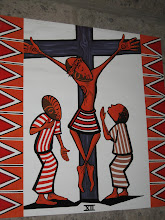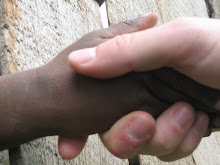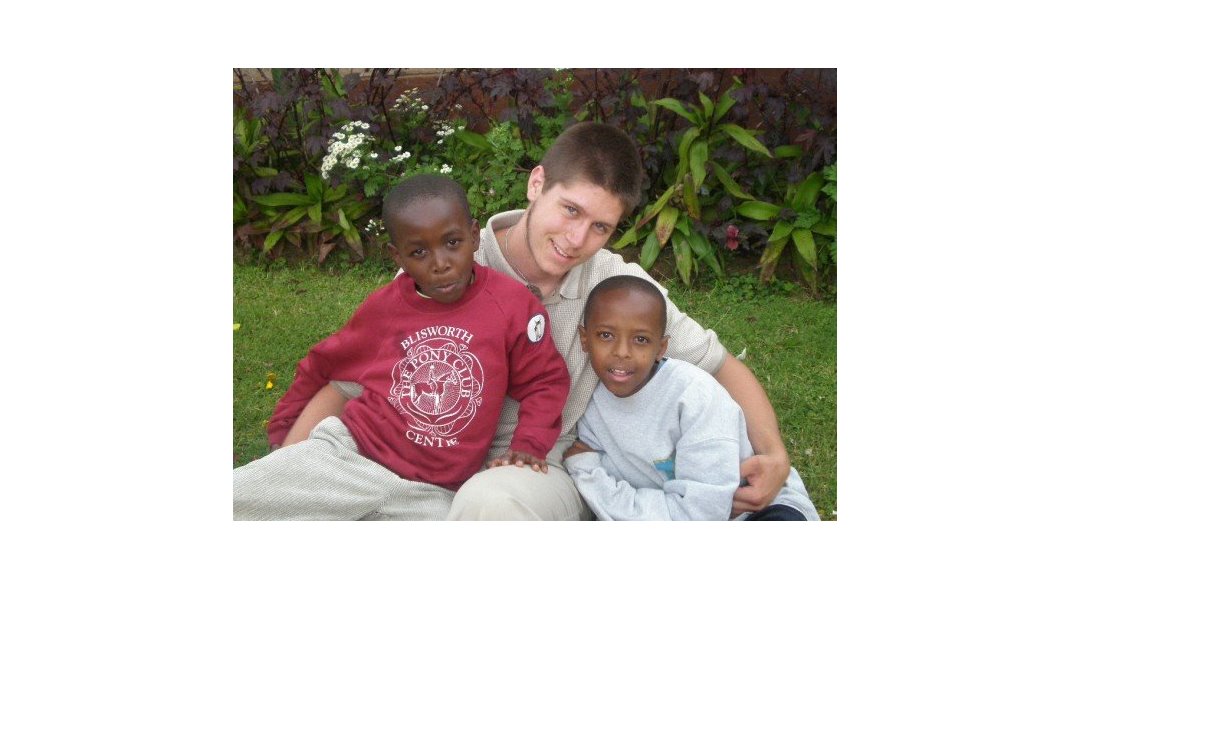Throughout their lives Christians seek to find the greatest good for themselves, which will make them whole/holy people who are interconnected as members of the community of faith. Christians are continuously involved in various life occurrences and develop relationships with both God and their fellow people, which lead them to respond and make critical choices. It is evident that people have a free will because they are able to decide what they will and will not do in relation to what is and is not ethical, moral, and/or right. A question arises, however, whether or not people have a say in their purpose on earth and their status of life after death. John Calvin, one of the leaders of the Protestant Reformation, argued that God ruled humanity through predestination, meaning that people did not have any control over their salvation or condemnation. According to Calvin, God decided whether one was destined for Heaven or Hell before the person was born. The Catholic/Christian notion disagrees with Calvin, as some Catholic followers of Jesus would say that man works with God, through providence, to reach his vocation in life and salvation in the world to come. John Calvin’s understanding of predestination was faulty because he did not sufficiently appreciate the value of the choices people made and experiences they had in relation to God and the world which ultimately shaped their individual future. Providence, with free will and the impact of sacramental initiation is the authentic way to discover vocation and ultimately reach salvation.
John Calvin viewed the created order through his understanding of predestination which was that eternal life was freely granted to some, while God freely condemned others. Calvin believed that man’s eternal destiny was exclusively dependent on the mercy God bestowed on each individual. He said that predestination was a secret of God, which was not to be questioned by people who are mere mortals. Calvin believed that because God had the power and ability to do all, God should be the only one to worry about who was to be saved and who was to be condemned. The French theologian argued that predestination was also interrelated with God’s eternal decree. By this statute, Calvin meant that God had the purpose and future of each person already planned out according to His will for that person. This part of Calvin’s understanding of predestination points toward his belief that each person’s role in life was known by God. Consequently, this does not mean that there is only one suitable lifestyle or career for each person, as some might think Calvin was suggesting. Humanity does have to make a conscious choice with regard to vocation. However, Calvin did not give enough credit to the choices that people made. Calvin’s understanding was slightly skewed, as He did not recognize the fullness of what it meant for people to work things out with God to reach their greatest good.
Calvin believed that God was love, as do some Christians. However, Calvin said that God only elected those He loved to salvation. Therefore, one can conclude that according to Calvin, God does love all people, but chooses only those He wishes to salvation. Some Christians may find this to be difficult to accept because of the belief that God loves all people just because “they are” as the Lord’s Word explains, and that God invites all to salvation. Nevertheless, Calvin would have said that God had the right to love those He wished to love and call those people to salvation because God showed His mercy on those He wished to have mercy on, as described in Exodus 33:19. Certainly, Calvin’s approach to who was called to life and who was condemned to death by God is very pessimistic. Why would God who is love, condemn some of His people to eternal separation from Himself (Hell) before they have even left the womb? This is not a rational belief because there would be no reason for life on earth if this was the case. In other words, God might as well just send the people predestined to damnation straight to Hell and those predestined for life right to Heaven and not grant people life on earth because their destiny is already decided whether they physically live in this world or not. Indeed original sin does exist, but one must appreciate that Jesus came to bridge the gap between God and humanity which lingered until the Son’s initial coming, as a result of humanity’s faulty nature. God is just, so would not those who resist making an effort and freely disobey the Lord be justly condemned, not those people who freely strive to be like Christ and love as the Lord loves?
Calvin talked about God allocating some people to destruction, but did not give evidence of this claim. He said that scripture showed that the Lord assigned a portion of humanity to destruction, but never cited the scripture, making his assertion questionable. Calvin did admit that Paul in his letter to the Ephesians said that we were chosen in Christ “before the creation of the world.” Calvin did not interpret this as those born into this world were chosen by God to have physical life and that all were invited to salvation, but that people were either chosen to paradise or eternal suffering. Calvin twisted Paul’s teaching saying that “Paul answers that God has predestined it so” and that this was “according to the good pleasure of his [God’s] will.” In actuality, Paul never mentioned predestination in this piece of scripture. Furthermore, Calvin went on to state that Paul meant that God had not only chosen whom He willed, but that each person’s birth came with a certain amount of set grace that the Lord granted to that human being. In his sermon of 1551, Calvin placed an emphasis on the distance between humanity and God, who is divine. He depicted God as an angry judge who crushed humanity when people rebelled against Him. Calvin focused too much on the fact that God knew what one would become rather than acknowledging or recognizing that people through their relationship with God choose where they can and will love the most.
In addition, Calvin argued that in predestination there was no consideration of works. This belief is quite contrary to what the Bible says in James 2:17. There the Word states that “Faith without works is dead.” Calvin’s decree tells Christians that whether they live a completely moral life without sin, or live in sin, their salvation does not depend on their actions. This is certainly an unacceptable concept because why then did God grant people free will? Calvin did not fully recognize the power or authority of free will in the sense of working with God through providence to reach salvation, as choice has no real authority when one’s eternal future is predetermined. In other words according to Calvin’s understanding of predestination one could choose God and not be saved if God did not bestow His mercy on that individual. Why would God reject those who loved Him and loved their neighbor? Calvin must not have read Deuteronomy 30:19 which stated, “This day I call heaven and earth as witnesses against you that I have set before you life and death, blessings and curses. Now choose life, so that you and your children may live.” Choice here is used to explain that people must freely decide to listen and work with God to reach salvation. Undoubtedly, people cannot reach salvation on their own, but have to answer yes to the call and respond to God through love. In the meantime, the gospel of John discredits Calvin’s belief of predestination as John 6:39-40 said, “This is his [God’s] will; that everyone who believes in the Son may not perish.” Therefore, this scripture if indeed true must mean that people have a choice and based on what they choose they are either saved or condemned. Life after death in this context is not determined because God wants to consign some to Hell and allow some into Heaven, but because some freely reject Christ, while others freely accept Him as Lord. Calvin did not give enough credit to the words choose and choice, and by ignoring them he displayed one reason why his approach was faulty in regards to the created order.
Calvin’s understanding of predestination fell short of reality for a number of other reasons. What would Christ’s sacrifice and ultimate expression of love on the cross mean in the eyes of Calvin if people are predestined? Jesus’ sacrifice in regards to predestination is less meaningful because man from the beginning is destined to Heaven or Hell, regardless whether man does decide to believe in the Son of God who came to save the world from sin and ultimately bridged the gap created by humanity’s disobedience. Calvin clearly stated that election was not dependent on one’s faith, but that the faith each person has was the product of election. This would mean that one does not choose to have faith, but is given it only if God wishes for that person to be saved. Does this mean that those with faith are saved, according to Calvin there is no certainty. Remember that Calvin suggested that people should not be concerned or question whether or not they are saved, this is hard to fathom. What Christian merely drifts through life without trying to figure out what salvation means and if they are going to Heaven or not? Is not the ultimate goal for a Christian to love God and neighbor and be saved to spend eternity with God?
The French Theologian also had an interesting view when it came to events that took place in the natural world, whether these occurrences affected people in a negative or positive manner. Calvin said, “When, therefore, one asks why God has so done, we must reply: because he has willed it.” This notion is the idea that everything that happens is essentially God’s will. This does not mean that God wills evil on humanity, but that God allows people to suffer the consequences of their own sin. In order to further his claim of legitimacy, Calvin suggested that the evils which occur are more man’s doing than the Lord’s. Right after making this statement he said that man “should not be blamed for what he cannot avoid and undertakes God’s will.” This is hypocritical because how is something man’s doing if God is the one who wills it and predestines things to happen? Calvin even went as far as saying that God predestined man to act in various ways.
Predestination outside of Calvin’s understanding is viewed somewhat differently. Predestination, a notion not accepted by some Christians, especially with regards to Calvin’s understanding of the created order, refers to:
Divine decree by which God, owing to His infallible prescience of the future, has appointed and ordained from eternity all events occurring in time, especially those which directly proceed from, or at least are influenced by, man’s free will.
The last part of this description of predestination plays a great importance because it recognizes that free will is present and affects one’s relationship with God and humanity. This idea of predestination says that not all men do reach eternity, however it says that many become eternally lost because of their own faultiness through the free act of sin. Nevertheless, the non Calvinist understanding of predestination is also questionable because it discredits the Christian teaching that people can work with God to reach salvation by saying that those predestined to Hell are the people who God knows are going to fail and fall into the state of sin, becoming His enemies. God may know what people are going to do before they act, a concept we cannot possibly grasp, but it is hard for one to accept that He gives up on people as the view of predestination suggests. Although this view of predestination allows more possibility for one to reach eternity than Calvin’s, it still cannot legitimately argue against the reality that people work with God through Providence, to reach their vocation in life and ultimately salvation.
Providence can be defined as working with God to reach completeness and thus salvation. Providence refers to a world which God has created that is independent, yet responsive to the attraction of God. It can be better explained as God’s parental care of creation. Furthermore, providence is God’s connection with creation and His relationship to the world and its development. Calvin’s understanding of predestination is faulty because he does not acknowledge the value of the choices of people who are in relationship with God and the world. Every day people have to decide between one thing and another, however there are times in one’s life that one has to make an extremely important choice that will bear subsequent consequences. Calvin’s understanding of the world ordered by predestination does not value the fact that people make choices and what they choose affects their friendship with God and the rest of humanity.
Peoples’ action through providence is essential in reaching their vocation in life. The experiences they have and how they respond to these situations are what shapes their future. If people respond negatively to these experiences and the call of God, they will not be able to reach their authentic self and wholeness. Contrarily, if people say yes to God and the call, they will be able to reach the greatest good and experience love. It is important to remember that through providence one is God’s partner in covenant. This commitment to one another through love, openness, and obedience allows for the person to grow as a Christian and become aware of who he/she is, the lifestyle he/she is called to live, and what he/she is to do in regards to a lifestyle and career. The notion of providence does not believe that there is merely one specific vocation for each human being. However, it is not so much what one does or the lifestyle one lives, but the importance must be placed on whether the particular vocation allows one to fully be oneself and love God and humanity the most.
Providence calls people to unity with God and this essentially means a dynamic relationship with the Father, Son, and Holy Spirit, three persons in one God who are ever present in the Christians life. As a result of God wanting the greatest good for people, through providence He leads Christians to situations and events where they have the opportunity to choose what is good. When a person does not choose to take part in a particular good that God leads one to, the person actually denies God and thus is disobedient to Him. The result of denying the Lord is independence from God, something which is the worst possible thing for a person to enter into, as it is ultimately suicidal. For without God one is nothing because God knows one better than one knows oneself. Therefore, through providence God leads us to discover or uncover our true selves and if we deny him we can never reach our authentic being.
Providence also speaks of grace which is given to humanity by God in order to help a person move from immanence to transcendence. Grace is a free gift given to one out of God’s love that allows a person to enter into a relationship that goes beyond, transcending time and space. It is grace which gives birth to new opportunity, experiences, and relationship with God, as well as an understanding regarding where the person is being led in life. Each person can reject God’s gift of grace and by rejecting grace he/she rejects God. When one rejects or separates oneself from God the result is sin, and it is sin which leads to death, a spiritual death and thus an eternal one. St. Paul teaches that God desires all humanity to be saved and to be awakened to the knowledge of truth. God leads one to what is good, but one must choose what is right. God respects people’s ability of choice or free will though He hopes that His creatures will use their freedom to work toward achieving love and ultimately salvation. Those who choose wrong freely choose to disobey God and their sin leads to separation from God. People who continue to reject the grace of God and His love are freely choosing Hell, eternal separation from love and from God. On the contrary, those who respond positively, freely choosing to follow the will of God, become creatures of love in this life and will be forever in the presence of God in the world to come.
Based on Calvin’s understanding and belief in predestination, he could not clearly perceive the importance of free will and its role in humanity’s relationship with God. The importance of choice has been discussed already though it is vital that one has a solid understanding of what free will essentially means. Free will allows each person who possesses reason to freely make one’s own decisions and thus hold authority over one’s thoughts, actions, and the creation of one’s character. Free will can be described as the voluntary action of humanity. God grants free will to His people because He wants them to choose the greatest good in relation to Himself and the world. There would be clearly no virtue if people did not have to make decisions which affect their relationship with God and their fellow man. Life would be meaningless if Calvin’s questionable approach to predestination of the created order were true. Free will is a grace which allows us to work toward the greatest good which is ultimately our salvation. Without it, humanity would have no say or way to work with God, meaning there would be no providence and a predestined order would exist. Those who seek to do God’s will continuously are promised a blessed life on earth, although not an easy life, and ultimately eternal life with God. People cannot be richer or more whole than when they keep the will of God in their hearts and act upon it, despite the selfish interests they set aside as a result of their love.
Sacramental initiation plays an important role in helping people enhance their relationship with God, work to reach their vocation in life and ultimately salvation. The three sacraments of initiation are Baptism, Confirmation/Chrismation and Eucharist. Baptism, the first sacrament of initiation, is when Christians partake in the celebration of welcoming in new members among the Body of Christ. Baptism symbolizes a death and rebirth, where Christians rise with Christ to new life, undergoing a spiritual birth. This sacrament is significant because it is the symbolic act by which the recipient is clothed with Christ and enters into the community of faith. The baptized become a new creation, as Romans 8:29 says “they have become a new man in Christ, and they are conformed to Christ.” Certainly baptism is a sacrament that allows one to work with God and helps the relationship one has with the Lord to grow and blossom. If Calvin’s understanding of predestination were true, there would be no need for Baptism because either one would be clothed in Christ being saved or the contrary, resulting in eternal damnation. In the New Testament through Baptism one “enters into the kingdom of God and into the sphere of the saving work of Christ.” Lastly, baptism involves a profession of faith for or by the baptized, as the individual receives the Holy Spirit. The Holy Spirit is the spirit of God which drives one to live a life of truthfulness, meekness, faithfulness, and love, helping Christians to further their relationship with God and humankind. Baptism a vital symbol in Christianity, one of the two sacraments kept by Luther and many Protestant Churches, was denied by Calvin in regards to it being a sacrament.
Another sacrament of initiation is the Eucharist. The Eucharist is the Blessed Sacrament in which Jesus Christ is physically present in the bread and wine. The bread presents Christ’s body and the wine his blood, as the Lord gave up his physical self in the ultimate expression of love on the cross. Those who partake in the Eucharist fully experience the presence of Jesus and are essentially filled by Christ. Therefore, Christians believe that they are forgiven of all their iniquities and that Christ enters into them, which makes Christians whole and complete because Jesus is holy. In the Eucharist, Christ nourishes souls and provides the believer with grace that transcends both time and space. The Eucharist is the sacrament where Christians are centered upon God’s table of love and life. By consuming the bread and wine, Jesus becomes a living part of the recipient. It is through this sacrament that Christians become closer to God, receive an abundant amount of grace, and can reach spiritual fulfillment because Christ heals brokenness and replaces it with love. Only through providence, working with God, can the sacrament of Eucharist hold such vital importance for one’s relationship with his savior, thus helping him to reach salvation. Calvin did not keep the Eucharist as a sacrament either. He and his followers preserved none of the seven official sacraments of the Catholic Church, not even the sacraments of initiation.
Currently, confirmation is the final sacrament of initiation which impacts Christians to discover their vocation and reach fulfillment. Confirmation is when the Holy Spirit is given to a Christian in a special manner. The Spirit is “given to perfect and complete the initiation begun in baptism.” Through this gift of the Holy Spirit, Christians are made strong soldiers of Jesus Christ, who are called to profess their faith in the risen Lord. This sacrament presents the power of God within His people through the Holy Spirit and allows Christians to enter into a more mature and closer relationship with the Lord. As a result of Calvin not believing that people work with God to reach salvation, confirmation held less importance to him than to those who understood providence. The recommitment of faith which is at hand during confirmation and the grace one receives are important for the Christian’s growth toward reaching the greatest good and is yet another experience of God’s love. Essentially, an interior transformation occurs through the sacrament of Confirmation and the believer becomes a reformed and stronger member of the community of faith.
Salvation is what all Christians are striding for. Reaching eternity, Heaven, refers to being forever in the presence of God who is love. John Calvin believed in salvation. However, he did not take into account the actions of people on earth, the experiences they had, and their effort to serve God and humanity when it came to being saved. Calvin merely suggested that one was either saved or damned. Salvation can be reached through providence and can only occur if one is willing to abandon the self and fully commit to following the Lord in all aspects of life. This means submitting to God’s will because He wills what is best for humanity and that which will make present the greatest good for each person. God enlightens His creatures and essentially leads all to salvation. In order to reach salvation one must believe in Jesus Christ who died on the Cross and rose from the dead on the third day, hope in Christ the Lord, love God and neighbor, and work to fulfill God’s will. Salvation is liberation from sin and its consequences. Therefore, salvation brings people to ultimate completeness in God, as 1 Corinthians 3:22-23 says in “salvation all things are ours, we are Christ’s, and Christ is God’s.” One’s effort to do the will of God is the ultimate act of love, as faith, works, and the grace of God are what it takes for one to be saved.
Providence with free will and sacramental initiation is the authentic way one discovers oneself, one’s vocation, and eventually reaches salvation. John Calvin’s understanding of predestination was clearly faulty because of his inability to value the actions of people, their experiences, and their relationship with God and humanity. Through providence one can see how humanity works with God to achieve fulfillment. God invites all to salvation, therefore it is by the grace of God, along with faith and works that pave an individual’s destiny to either eternal happiness with God who is love or eternal damnation in the fires of Hell.
Jean Calvin, Institutes of the Christian Religion. Trans. Ford Lewis Battles. John T.
McNeill, eds. V 1-2 (Philadelphia: Westminster Press, 1960) 921.
Calvin 924-925.
Calvin 926.
Calvin 927.
Calvin 927-928.
Calvin 933.
Calvin 934.
Calvin 934.
W.H. Neuser. “Neuser: Calvin the Preacher: His Explanation of the Doctrine of Predestination in the
Sermon of 1551 and in the Institutes of 1559.” Hervormde Teologiese Studies volume. 54 (1998):
60-103. ATLA. James White Library, Berrien Springs, MI. October 17, 2007. 73.
Calvin 935.
Calvin 946.
Calvin 967.
Calvin 949.
Calvin 953.
Calvin 954.
Calvin 954.
Charles G. Herbermann ed. [et all]. The Catholic Encyclopedia: an international work
of reference on the constitution, doctrine, discipline, and history of the Catholic
Church. 15 vols (New York: Encyclopedia Press, 1913-1914) V.12 378.
Herbermann V.12 378.
Herbermann V.12 379.
Miroslav Volf and Michael Welker. “Fergusson; ‘Divine Providence and Action.’” God’s
Life in Trinity (2006): 153-165. (ATLA. Le Moyne College Library, Syracuse,
New York. September 20, 2007) 157.
Volf and Welker 153.
Volf and Welker 159.
Mark John Farrelly. Predestination, grace, and free will (Westminster, Md.: Newman
Press, 1964) 223.
Farrelly 229.
Farrelly 238.
Farrelly 10.
Farrelly 10-11.
Herbermann V.6 259.
Herbermann V.6 259.
Jean Pierre de Caussade. Self Abandonment to Divine Providence (London: Burns and
Oates, 1959) 125.
New Catholic Encyclopedia. 16 Vols. (Washington, D.C.: Catholic University of
America, 2003) V.2 58.
New Catholic Encyclopedia V.2 58.
New Catholic Encyclopedia V.2 55.
New Catholic Encyclopedia V.2 57.
Herbermann V.5 572.
Herbermann V.5 573.
Herbermann V.5 584.
Marian Bohen. The mystery of confirmation, a theology of the sacrament (New York:
Herder and Herder, 1963) 21.
Bohen 31.
Bohen 20.
Caussade 121.
Caussade 122.
Farrelly 273.
Herbermann V.13 407.
Herbermann V.13 407.
Works Cited
Primary Sources.
Calvin, Jean. Institutes of the Christian Religion. Trans. Ford Lewis Battles. John T.
McNeill, eds. V 1-2. Philadelphia: Westminster Press, 1960.
Secondary Sources
Bohen, Marian. The mystery of confirmation, a theology of the sacrament. New York:
Herder and Herder, 1963.
Caussade, Jean Pierre de. Self Abandonment to Divine Providence. London: Burns and
Oates, 1959.
Charles G. Herbermann ed. [et all]. The Catholic Encyclopedia: an international work of
reference on the constitution, doctrine, discipline, and history of the Catholic Church. 15 vols. New York: Encyclopedia Press, 1913-1914.
Farrelly, Mark John. Predestination, grace, and free will. Westminster, Md.: Newman
Press, 1964.
Neuser, W.H. “Neuser: Calvin the Preacher: His Explanation of the Doctrine of
Predestination in the Sermon of 1551 and in the Institutes of 1559.” Hervormde Teologiese Studies volume. 54 (1998):60-103. ATLA. James White Library, Berrien Springs, MI. October 17, 2007.
New Catholic Encyclopedia. 16 vols. Washington, D.C.: Catholic University of
America, 2003.
Volf, Miroslav; Welker, Michael. “Fergusson; ‘Divine Providence and Action.’” God’s
Life in Trinity (2006): 153-165. ATLA. Le Moyne College Library, Syracuse,
New York. September 20, 2007
Subscribe to:
Post Comments (Atom)


































No comments:
Post a Comment